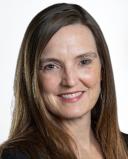Media
Aging and the Social Value of Women
Age positivity is a key way to promote women's "whole health."
Posted May 15, 2023 Reviewed by Ekua Hagan
Key points
- A key to health is the perception that one is aging well.
- For women, society’s youth-based beauty standards have negative mental health consequences.
- This issue will persist with future cohorts of older women who had heavy exposure to social media as teens.
National Women’s Health Week marks a time during the year when women’s health is in the spotlight. Held this year from May 14-20, the focus is, “Women’s Health, Whole Health: Prevention, Care, and Wellbeing." Given the ways in which health issues evolve over the life course, it is important to consider the theme of whole health well into women’s older adulthood.
As we age, a key component of physical and mental health is the perception that we are aging well. Specifically, the way we view our own aging can serve as a sort of “self-fulfilling prophecy” whereby a primarily negative self-perception of aging can jeopardize our ability to deal with stress thereby increasing our risk for health issues such as heart disease and cognitive decline.
For women, this reality coexists with society’s expectations about their physical appearance, particularly youth-based beauty standards that are at odds with the natural process of aging. These standards suggest that women’s social value diminishes with age, and are reinforced by the fact that, when women reach older adulthood, they are much less represented within the media than older men and younger women.
It is not surprising that this climate is not particularly well-suited to foster the whole health of women across the life course. Indeed, negative self-evaluation such as body dissatisfaction among older women has been associated with mental health consequences such as depression symptoms. Even when older women hold a positive sense of self, many do so while experiencing a kind of cognitive dissonance between their internal confidence and society’s evaluation of their aging appearance. With this in mind, a focus on women’s whole health should also include efforts to promote age-positivity.
Central to this is moving toward a social culture in which aging is seen, and viewed as a normal process and not enemy territory. According to a research series in 2018, older women want to see themselves represented more accurately in the media by showcasing their diverse life experiences and aging paths, and as consumers of wellness and lifestyle brands with representation in advertising. Older women also want to see themselves represented in entertainment with more authenticity – being portrayed as people with full lives, without a preoccupation with looking younger, and with less reliance on stereotypical roles (such as a grandparent or wise mentor).
Additionally, our everyday language is imbued with cultural attitudes about aging, serving to reinforce stereotypes and misperceptions about older adults. Changing the ways in which we talk about aging, including eliminating ingrained ageist language, can lay the foundation for a shift in how aging is viewed. For example, the beauty industry’s use of the term “anti-aging” has recently been called out as a factor contributing to a disdain for growing older and ageist attitudes.
In 2017, the beauty magazine Allure declared that it will no longer use the term “anti-aging” in its issues because “Language matters. When talking about a woman over, say, 40, people tend to add qualifiers: ‘She looks great…for her age’ or ‘She’s beautiful…for an older woman.’ Catch yourself the next time and consider what would happen if you just said, ‘She looks great.’” Similarly, global beauty brand The Body Shop pledged to remove anti-aging messaging from their branding by focusing on empowerment in their “Self-Love” line and rebranding their best-selling “Drops of Youth” skincare regimen with a name evoking strength and resilience.
Several high-profile celebrity women have also made a point to engage the public on this issue and, as such, have built a foundation for a national conversation about women and aging. Stars such as Taraji P. Henson, Michelle Yeo, Paulina Porizkova, and Justine Bateman have been vocal in interviews, movie award speeches, and in a best-selling book, about the damaging ways in which older women are portrayed in the media and the diminished opportunities available to them in TV and film. And, while older women are finally starting to see a “resurgence” in Hollywood, with numerous recent awards being won by women over 45, there is still a clear imbalance to contend with in order to approach true representation.
It is important to keep in mind that each age cohort brings a different set of formative experiences with them into their own older adulthood, resulting in a different sociocultural aging process for each group. For example, today’s younger generations will grow older with years of exposure to social media in their archive of lived experiences. Research has already shown that high amounts of social media consumption can have a detrimental influence on body image, especially among adolescent girls, by intensifying their focus on physical appearance. As such, although the appearance-based devaluing of older women and its associated repercussions are beginning to gain national attention, the issue will likely persist with each subsequent generation of women based on their unique experiences and concerns. How our society responds to this issue over time will play an important role in determining how fully we can address women’s “whole health.”


